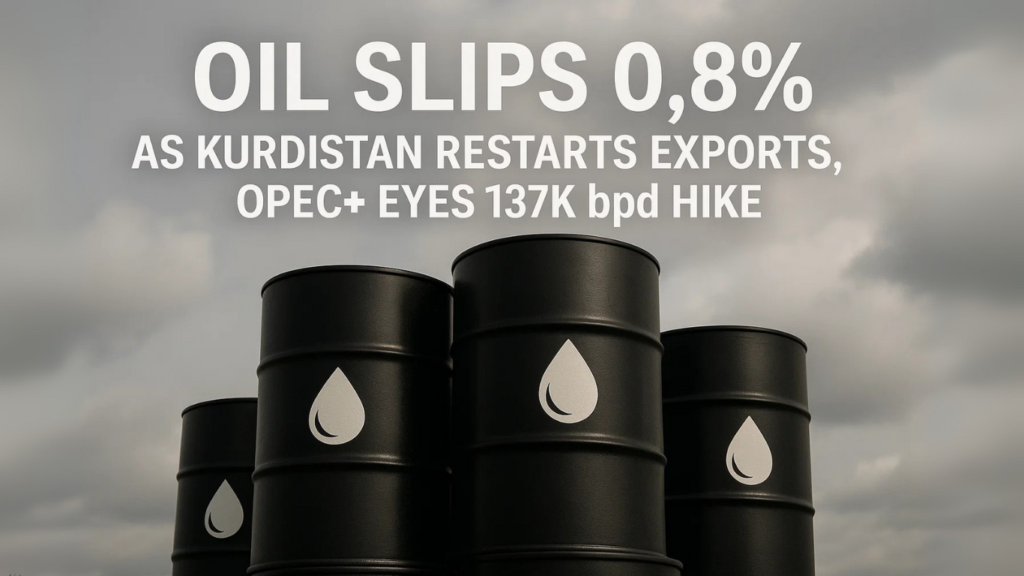Oil prices eased Monday after Iraq’s Kurdistan region resumed exports through Turkey for the first time in over two years. The development, combined with expectations of an OPEC+ production hike, has renewed supply concerns.
Brent crude fell 0.6% to $69.70 a barrel by 06:30 GMT, while U.S. West Texas Intermediate (WTI) declined 0.8% to $65.23. Both benchmarks gave back part of last week’s sharp gains, when Brent and WTI climbed more than 4%, their strongest weekly advance since June.
The pipeline agreement—brokered between Iraq’s federal government, the Kurdistan Regional Government (KRG), and foreign producers—allows 180,000 to 190,000 barrels per day (bpd) to flow to Turkey’s Ceyhan port. The deal could eventually restore up to 230,000 bpd of crude exports, Iraqi officials confirmed.
Analysts say the restart, backed by U.S. pressure, comes at a pivotal time as global markets weigh competing forces of supply growth and geopolitical disruption.
OPEC+ Considers New Output Boost
OPEC and its allies are preparing to raise output again. Sources told Reuters the group may approve an additional 137,000 bpd hike at its upcoming meeting, building on earlier efforts to capture market share amid rising prices.
Still, the alliance has struggled to meet its own targets, producing nearly 500,000 bpd less than planned in recent months. This shortfall has tempered fears of a global oversupply, even as demand signals remain mixed.
- Proposed increase: 137,000 bpd in November
- Current shortfall: ~500,000 bpd below target
- Market impact: Balances supply boost with missed quotas
RBC Capital Markets warned that further cuts to OPEC’s spare capacity could heighten risks later this year. Ongoing conflicts involving Russia and Iran are also seen as potential catalysts for unexpected supply shocks.

Geopolitics Keeps Oil Volatile
While supply is expanding, geopolitical instability continues to drive volatility. Ukraine’s drone strikes on Russian energy infrastructure last week forced Moscow to curtail fuel exports, contributing to last week’s rally.
On Sunday, Russia escalated attacks on Kyiv and other cities in one of its heaviest bombardments since the start of the war. At the same time, the United Nations reinstated sanctions on Iran’s nuclear program, a move Tehran has threatened to resist.
These developments underscore the fragile balance in energy markets, where near-term supply growth is being weighed against persistent geopolitical risks.


